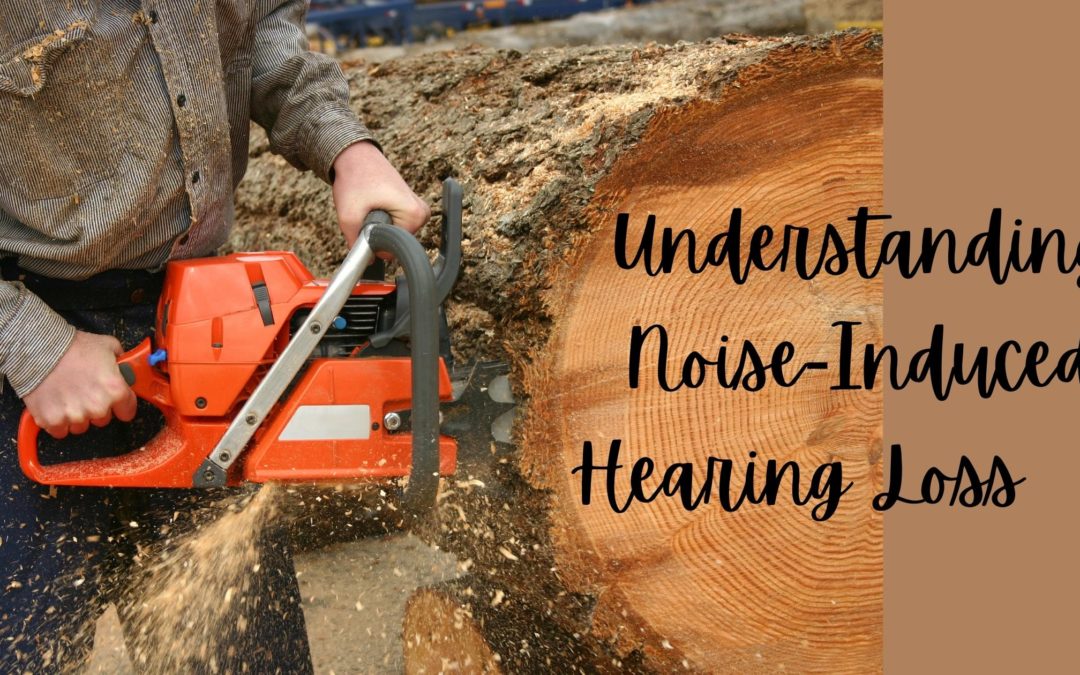Do you have hearing loss? Are you worried your noisy job may cause hearing loss in the future? Here is everything you need understand about noise-induced hearing loss.
What is Noise-Induced Hearing Loss?
Let’s start with the basics. Noise-induced hearing loss (NIHL) is hearing loss that is caused by dangerously loud noises close by. We hear loud noises all day every day, and some of them can harm our hearing. For example, the TV on full volume, your personal listening device, your favorite restaurant or bar, or even your workplace could all contribute to NIHL.
Many of the sounds around us are harmless and won’t affect the health of your ears. However, when sounds become too loud, they can damage the cells in the inner ear. Sometimes NIHL is immediate and permanent. For example, if you spend an afternoon at the shooting range without earmuffs, you will most likely notice some hearing loss right away. This one-time exposure to extremely loud noise can cause permanent hearing loss.
For others, NIHL is more gradual, and you’ll start to notice changes in your hearing over the course of several weeks or months. This can be caused by more continuous exposure to loud sounds that damage your hearing over time.
What Sounds Cause Noise-Induced Hearing Loss?
Any sounds louder than 85 decibels (dB) can cause hearing loss. This means that many of your work and recreational activities could lead to hearing loss! Sounds that can increase your risk of hearing loss include:
- Mowing your lawn or using a leaf blower (100 dB)
- Riding a motorbike or snowmobile (100-110 dB)
- Listening to music on high with earbuds (110 dB)
- Attending a concert (115 dB)
- Operating heavy equipment (100-120 dB)
- Standing close to emergency sirens (120 dB)
- Hunting or going to a shooting range (120-140 dB)
- Standing close to fireworks (140 dB)
Your risk increases the closer you are to the source of the sound and the longer you are exposed to the sound.
What are the Signs of NIHL?
The signs of NIHL may be hard to spot at first. If you have gradual hearing loss, you may not notice right away that your hearing has changed. Your brain makes small adjustments to help you make sense of your environment, so you don’t realize you’re not hearing as well as you used to. However, as time goes on, you’ll start to notice the signs of hearing loss.
- Difficulty following conversations: One of the earliest signs is having a hard time following conversation. That’s because hearing loss affects your ability to clearly distinguish between different speech sounds. It may seem like your family and friends are always mumbling, or that their voices seem muffled.
- Asking people to repeat themselves: When it’s more difficult to follow conversations, you’ll notice that you’re asking people to repeat themselves during every conversation. This is even more obvious when you’re having a conversation in a place with background noise.
- Tinnitus: Another sign of hearing loss is tinnitus. This is a ringing or buzzing noise that only you can hear. Tinnitus is often an early sign that you have some damage in your inner ear.
- Turning up the volume: Are you turning up the volume on your TV or phone? This is another early sign that you may not be hearing clearly.
Preventing Noise-Induced Hearing Loss
Noise-induced hearing loss is completely preventable! It’s the only kind of hearing loss that you can prevent with a bit of planning. Start by learning more about the sounds that can cause hearing loss. To test everyday noises, you can even download a free decibel reader app, and check the loudness of the sounds in your environment.
Whenever sounds are higher than 85dB, wear hearing protection! This could be as simple as putting in a pair of foam or wax earplugs when you’re mowing the lawn. When you’re exposed to extremely loud noises, earmuffs can give you more protection. Wear earmuffs at the shooting range, at work, or anytime sounds are dangerously loud.
You can also invest in custom-fitted digital hearing protection. These devices will let you hear soft sounds normally, and automatically protect your ears from very loud noise. Contact us today learn more about healthy hearing practices and to schedule an appointment!


